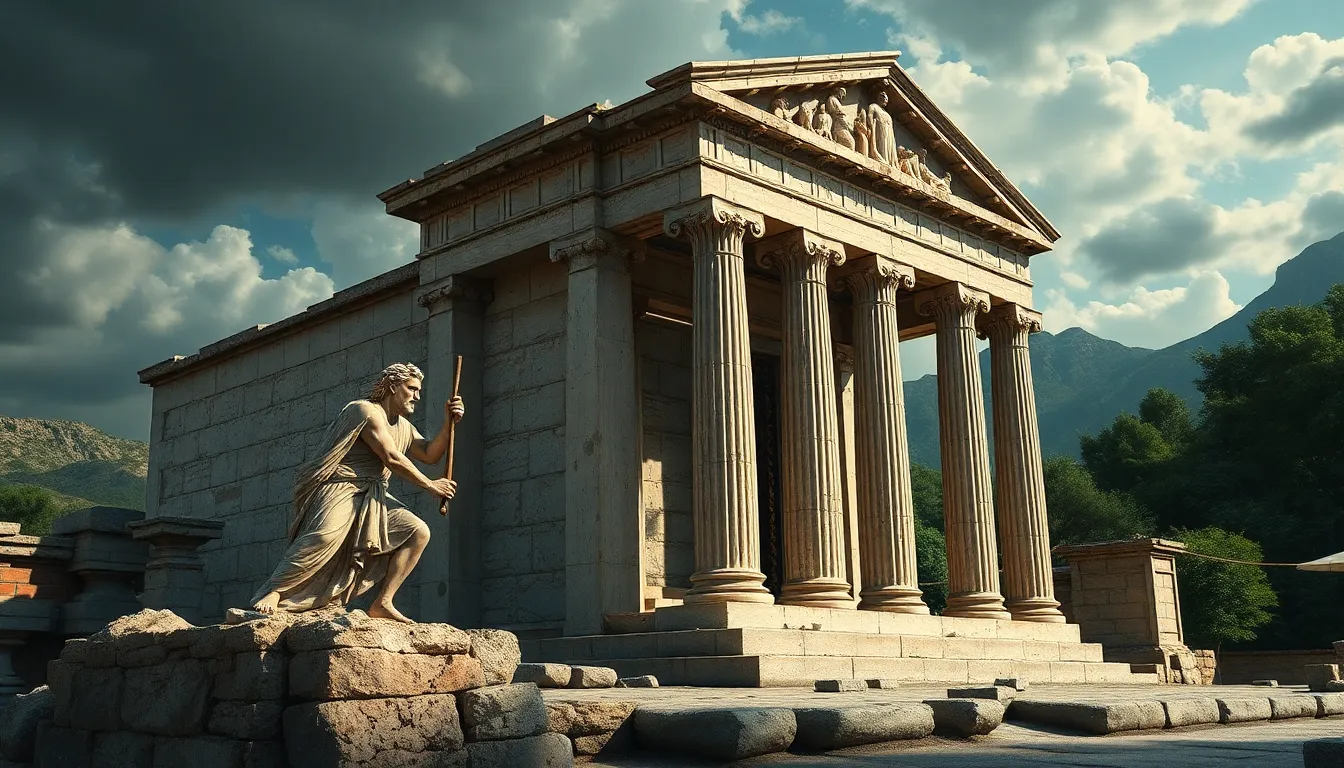Greek Myths and Their Role in Shaping Literary Tropes
I. Introduction
Greek myths are traditional stories that have been passed down through generations, encompassing tales of gods, heroes, and the nature of humanity. These narratives not only provide insight into ancient Greek beliefs and practices but also serve as foundational texts that have shaped literature across centuries.
The significance of Greek myths in literature is profound. They have influenced countless authors and poets, serving as a source of inspiration and a framework for storytelling that continues to resonate today. This article aims to explore the origins, themes, archetypes, and ongoing influence of Greek myths in both classical and modern literature.
II. The Origins of Greek Myths
The origins of Greek myths can be traced back to the rich oral traditions of ancient Greece, where storytelling played a vital role in preserving cultural heritage and entertaining audiences. Myths were often created to explain natural phenomena, human behavior, and the origins of the world.
Key figures in Greek mythology include gods like Zeus, Hera, Poseidon, and Athena, as well as legendary heroes such as Hercules, Perseus, and Achilles. Each character embodies various human traits and moral lessons, making them relatable to audiences across generations.
The cultural importance of storytelling in ancient Greece cannot be overstated. Myths were not only a source of entertainment but also a means of imparting wisdom, ethical values, and societal norms. They provided a shared framework for understanding the world and human experience.
III. Common Themes in Greek Myths
Many Greek myths explore universal themes that resonate with audiences, such as:
- Heroism and the hero’s journey: Myths often center around a hero’s quest, showcasing their struggles, triumphs, and personal growth.
- Fate vs. free will: The tension between destiny and individual choice is a recurring theme, highlighting the complexities of human existence.
- Love, betrayal, and revenge: The intricacies of relationships are explored, often leading to tragic outcomes that reflect the darker sides of humanity.
IV. Greek Myths as Literary Archetypes
In literature, archetypes are recurring symbols, themes, or character types that represent universal patterns of human nature. Greek myths are rich with archetypes that have influenced literature throughout history. Some notable examples include:
- The tragic hero: Characters like Achilles and Oedipus embody the tragic hero archetype, facing inevitable downfall due to a personal flaw.
- The femme fatale: Figures like Medusa and Circe illustrate the dangerous allure of female characters who can lead men to their doom.
- The mentor: Characters such as Chiron, the wise centaur, guide heroes on their journeys, representing wisdom and guidance.
These archetypes not only influence character development but also shape plot structures, creating familiar patterns that resonate with readers and audiences.
V. Impact on Classical Literature
Greek myths have had a profound impact on classical literature, particularly in epic poetry and drama. Major works like Homer’s “Iliad” and “Odyssey” are steeped in mythological references and themes.
The “Iliad” explores the wrath of Achilles and the consequences of pride and honor in war, while the “Odyssey” follows Odysseus’s perilous journey home, illustrating the hero’s journey archetype. These epics set the standard for storytelling, influencing future generations of writers.
Additionally, Greek mythology played a significant role in shaping ancient Roman literature. Roman poets and playwrights, such as Virgil and Ovid, adapted and reinterpreted Greek myths, further embedding them in Western literary tradition.
VI. Greek Myths in Modern Literature
In contemporary literature, Greek myths have been adapted and reinterpreted in various ways. Modern authors draw on these ancient stories to explore new themes and perspectives. Notable examples include:
- Madeline Miller: Her novels, such as “Circe” and “The Song of Achilles,” retell Greek myths from the viewpoints of their female characters, offering fresh insights into their stories.
- Rick Riordan: Known for his “Percy Jackson & the Olympians” series, Riordan modernizes Greek mythology for young audiences, blending adventure with mythological elements.
The relevance of Greek myths in addressing modern themes is evident as they tackle issues like identity, power, and morality, proving that these ancient narratives still hold significance in contemporary storytelling.
VII. Cross-Cultural Influence of Greek Myths
Greek myths have not only influenced Western literature but have also drawn comparisons with myths from other cultures. Themes of heroism, creation, and the human condition are universal, appearing in various mythologies around the world.
For example, the hero’s journey can be found in the stories of figures like King Arthur in British folklore or Gilgamesh in Mesopotamian mythology, highlighting shared human experiences across cultures.
The role of Greek myths in global literature is significant, as they serve as a bridge connecting different cultural narratives, showcasing the universality of certain themes and the shared human experience.
VIII. Conclusion
In summary, Greek myths have played an essential role in shaping literary tropes and influencing storytelling throughout history. From their origins in ancient Greece to their lasting impact on classical and modern literature, these myths continue to resonate with audiences today.
The enduring legacy of Greek myths in literature is a testament to their universal themes and archetypes, which continue to inspire writers and captivate readers. As we explore contemporary storytelling, we invite you to delve into the rich world of Greek mythology and discover the timeless narratives that continue to shape our understanding of humanity.




